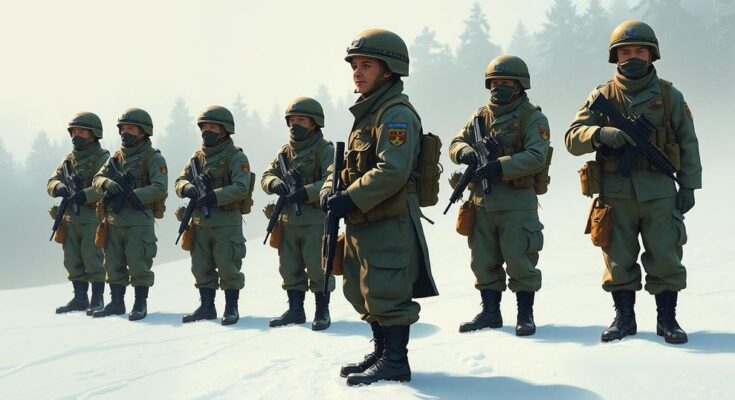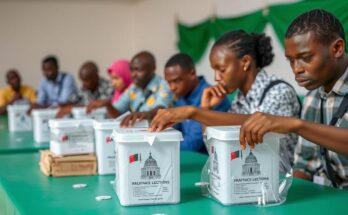Ukrainian President Volodymyr Zelensky has proposed to exchange two captured North Korean soldiers for Ukrainian prisoners of war in Russia, emphasizing options for the soldiers who wish not to return. The captured soldiers were apprehended in January, and their situation has sparked dialogue regarding military involvement and treatment of prisoners amidst the Ukraine-Russia conflict.
Ukrainian President Volodymyr Zelensky has announced his readiness to exchange two captured North Korean soldiers for Ukrainian prisoners detained in Russia. He articulated this possibility on social media, indicating that those North Korean soldiers who do not wish to return may explore alternatives. Zelensky emphasized the importance of dialogue, stating that those who promote peace by sharing their experiences concerning the ongoing conflict will find opportunities.
The captured North Korean soldiers were apprehended on January 9. President Vladimir Putin had previously acknowledged that North Korean troops were being deployed in Ukraine, referring to it as Russia’s sovereign decision. The Security Service of Ukraine (SBU) confirmed that the soldiers are currently receiving medical attention in Kyiv, with assistance from South Korea’s National Intelligence Service (NIS).
Images shared by Zelensky depict the wounded soldiers, accompanied by a red military card indicating one soldier’s birthplace in Turan, Tuva Republic. During preliminary interrogations, one of the soldiers mentioned he had received the military ID in Russia and was under the impression he was participating in training, rather than engaging in combat against Ukraine, eliciting further concern from Ukrainian officials regarding Russia’s attempts to obscure the soldiers’ true identities.
The SBU reported that one soldier claimed he was born in 2005 and had been enlisted since 2021, while the other, unable to speak due to injury, provided information through writing, indicating a service record as a scout sniper since 2016. There remain unresolved questions about the authenticity of their capture, as neither BBC News nor other international media have confirmed the details provided by Ukrainian authorities. Recent reports suggest substantial casualties among North Korean troops supporting Russia, further complicating the situation, with Zelensky underscoring Russia’s reliance on North Korean military assistance.
The ongoing conflict between Ukraine and Russia has drawn in various external forces, including North Korean troops, which adds complexity to the geopolitical landscape. President Zelensky’s proposition concerning the exchange of soldiers illustrates the intricate dynamics of war, diplomacy, and international relations. North Korea’s involvement in the conflict raises concerns about military support for Russia amidst allegations of casualties among its soldiers. This situation highlights the ramifications of inter-country alliances and the protection of human rights in wartime contexts, particularly regarding how prisoners of war are treated under international law, such as the Geneva Conventions.
In conclusion, President Zelensky’s offer to exchange North Korean soldiers reflects both a strategic move to secure the release of Ukrainian prisoners and an acknowledgment of the complex realities of the ongoing war. The situation raises implications regarding military alliances, the treatment of prisoners, and the broader impact on international relations amidst the conflict. The unanswered questions surrounding the identities and circumstances of the captured soldiers only serve to deepen the intrigue surrounding the geopolitical consequences of the war.
Original Source: www.bbc.co.uk




